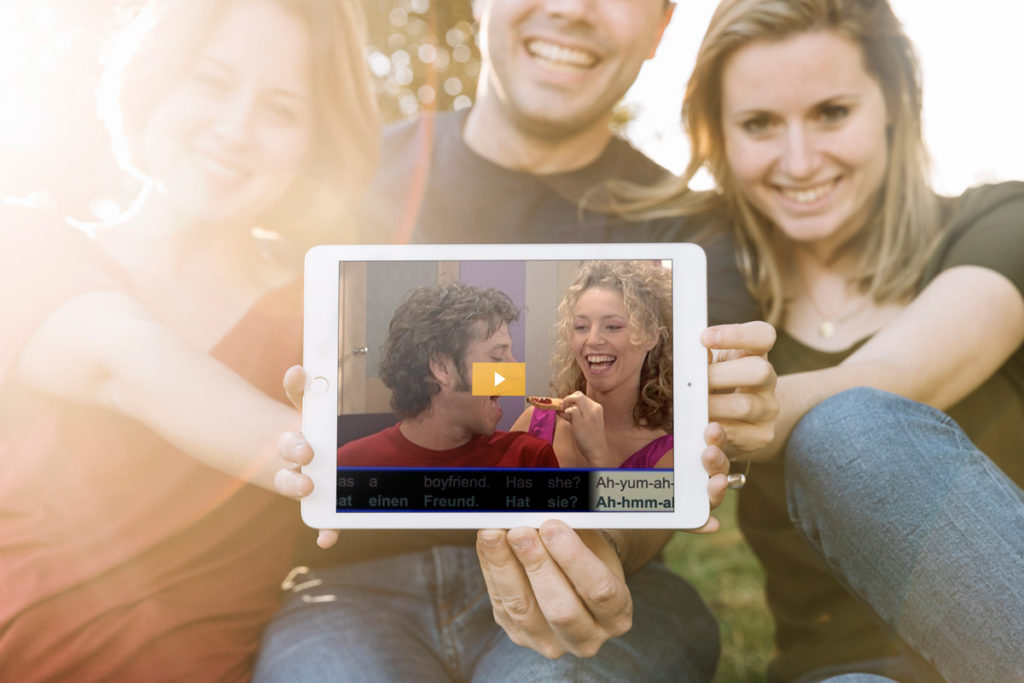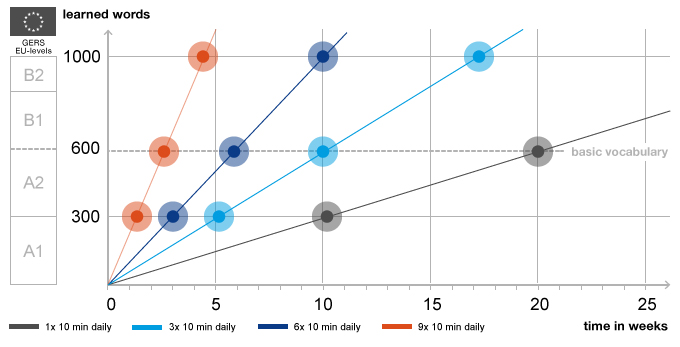Learn the best tips for learning languages for holidays in this article!
Basic Knowledge of the Host Language Can Make You a Star
Knowing a few phrases in the local language can offer you a lot of advantages. By communicating with locals, you can have a much more enjoyable experience during your holiday.
Unique Experiences Thanks to Language Skills
Most of my travel highlights stem (almost always) from conversations with locals. Recently in Northern Ireland, we had a pleasant conversation with a Pub musician who told us about a picturesque cliff. I am a German native, so this was all down to my good English skills. Then we met a lady who rented out parking spaces at the starting point of a magnificent hiking tour. When chatting with her, we learned that a critical scene from the series Game of Thrones (I am a huge fan!) was filmed right there on the cliff. The lady told us about her meetings with the main actors. It was fascinating! I’m thrilled we went there, and met with locals and chatted with them (even if I didn’t understand every single word). It was the highlight of my trip!

Would you like to have the same holiday experience? Today, we present three options to prepare you for your next holiday abroad so you too can immerse yourself in the foreign language:
1. Prepare the Most Important Phrases:
Learn the key phrases in the local language before you start your trip.
2. Learn How to Communicate in Daily Life Beforehand:
If you wish to communicate with locals, prepare a few weeks before your departure.
3. Practice on Your Holiday:
Get the best out of your trip by speaking in the country, directly with the locals and improve your language skills quickly.
1. Prepare the Most Important Phrases
Learn the key phrases in the local language before you start your trip.
A few phrases in the foreign language will help you with the basics during your travel. Start thinking about various situations you might experience during the trip and what you might need to say. You can use the internet to translate the phrases into a foreign language. Some destination websites even summarise the main essential terms used during your holiday.
By the way, most travel guides also contain useful phrases in the local language, usually on the last pages.
If you don’t want to learn by heart, but want to understand the foreign language, de-code the necessary phrases yourself. De-coding means “deciphering.” The tool is our mother tongue, as we know it by heart. By translating a text word for word into the mother tongue, we learn to understand the foreign language. By doing so, we’re easily learning:
- the meaning of the individual words
- the use of words in the sentence context
- the foreign language’s syntax
- the grammar, such as conjugations, tenses and prepositions
- differences and similarities to our mother tongue
Would you like to learn more about de-coding? How best to proceed in de-coding? Learn more about this topic: Easy Language Learning by Vera F. Birkenbihl – The Decoding Method
2. Learn How to Communicate in Daily Life Beforehand
If you wish to communicate with locals, prepare a few weeks before your departure.
Do you want to know more than “I don’t speak your language.” and “We want to check-in, please.”? Then we recommend a crash course—you can learn quickly and in time with a Brain-Friendly Movie Language Course. With our brain-friendly language courses, you can soon learn the basic knowledge of your desired language; the same way you learned your mother tongue.
What Is Brain-Friendly?
Learning is effortless when the brain encounters the words’ meanings. The Birkenbihl Approach, named after the German management coach Vera F. Birkenbihl, is based on observations and findings of the fields of neuroscience and social sciences. The primary tool for this approach is de-coding. Visit our website and find out more: www.brain-friendly.com.

How Much Should I Learn for My Holiday?
About 300 words are usually enough to get by on holiday (GERS Level: A1). With this level, you can formulate simple sentences and chat in a restaurant, hotel or shop. Learning for just 10 minutes a day, you can reach this vocabulary in 10 weeks! Of course: The more you practise, the faster you reach your goal.
You can use this graphic as a guide:

If you want more, you can go to The Basic vocabulary. It’s about 600 words (GERS Level: A2). Most daily newspapers even come with less! So, if you can understand a total of 600 unique words, you could easily follow an everyday conversation in your destination country. Be it Italy, France, Germany or China.
How Long Will I Have to Study For Each Day?
We recommend learning in 10-minute intervals. During this time, the brain can concentrate on the language and take up new information best. After 10 minutes, you should switch activities—for example, read a newspaper in the foreign language for 10 minutes, listen to a foreign radio station for 10 minutes, write a short text in the foreign language or even do some gardening. After each learning session, your brain continues learning for about 10 minutes. This process will double your learning efficiency!
Only 4 Weeks Left Until Departure — What Can I Do Until Then?
If you’re learning one to three times a day (in 10-minute intervals), you can reach a travel vocabulary with 300 words in 5 weeks. The more learning sessions you do, the faster you get to it. With 9 sessions a day, you can reach your travel vocabulary in just one week! (See chart above to find out the estimated duration of learning time needed.)
Learn more on the topic of learning and time: Faster Language Learning: Learn a New Language in SixWeeks.
3. Practice on Your Holiday
Get the best out of your trip by speaking in the country, directly with the locals and improve your language skills quickly.
From the airport security officer to the employee at your hotel: You will be able to communicate in the foreign language during your trip with different people. See this as an opportunity to use and improve your language skills! Only practice makes you better—and after the third sentence, the initial shyness passes. Residents are happy about your efforts; nobody cares about minor mistakes! At some point, you won’t make any mistakes, but you have to push yourself and just start speaking.
Excellent preparation for speaking is background listening. Play foreign language audios (preferably of the Brain-Friendly Courses, because you already understand these texts) quietly in the background. Do not actively concentrate on them, but instead follow your daily life activities: You can work, drive or even sleep. Your brain is completely independent of the neural pathways necessary for speaking a foreign language perfectly. You get used to the new sounds, the language rhythm and the language melody. You assign the learning work to your subconscious. This delegation costs no time and will prepare you to talk in the best possible way during your trip!

